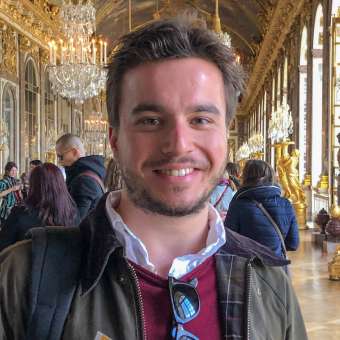Özyeğin University, Çekmeköy Campus Nişantepe District, Orman Street, 34794 Çekmeköy - İSTANBUL
Phone : +90 (216) 564 90 00
Fax : +90 (216) 564 99 99
E-mail: info@ozyegin.edu.tr

Barış
DEMİRBAY
Instructor, Atomic and Molecular Physics
Experimental Biomolecular Physics, KTH Royal Institute of Technology, 2023
Physics Engineering, Istanbul Technical University, 2017
Physics Engineering, Istanbul Technical University, 2015
Biomolecular physics, quantum biophotonics, photophysics of florophores, polymer materials, fluorescence-based spectroscopic techniques, microfluidic systems, mathematical modeling, machine learnin
Dr. Barış Demirbay received his bachelor's (B.Sc.) degree in Physics Engineering from Istanbul Technical University in 2015. After completing his master's (M.Sc.) degree in the same department and university in 2017, he continued his research as an assistant and doctoral student in the Materials Science and Nanoengineering department at Sabancı University. In early 2018, he left this position to join the Applied Physics department at KTH Royal Institute of Technology as a research assistant and earned his doctoral (Ph.D.) degree in the field of Experimental Biomolecular Physics in June 2023. That same year, he worked as a short-term research engineer in the Applied Physics department at KTH, where he also provided training on the florescence-based spectroscopic methods he developed during his doctoral studies. In October 2023, he returned to Turkiye, moved his research to department of Natural and Mathematical Sciences at Özyeğin University, and taught physics courses as a part-time instructor in undergraduate programs of Faculty of Engineering. As of September 2024, Dr. Demirbay continues teaching physics courses in undergraduate programs and conducting scientific projects and research as a full-time instructor & researcher. His research interests include experimental and theoretical biomolecular physics, photophysical properties of fluorescent molecules, polymer physics, development of fluorescence-based imaging techniques, microfluidic systems, mathematical modeling, and machine learning.

